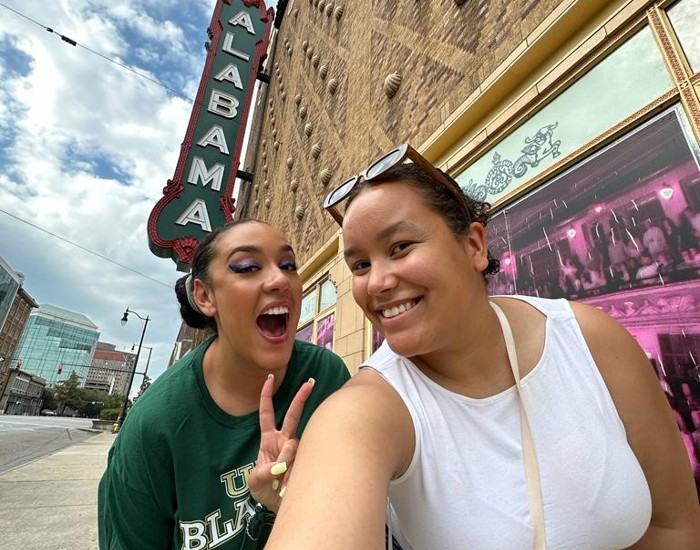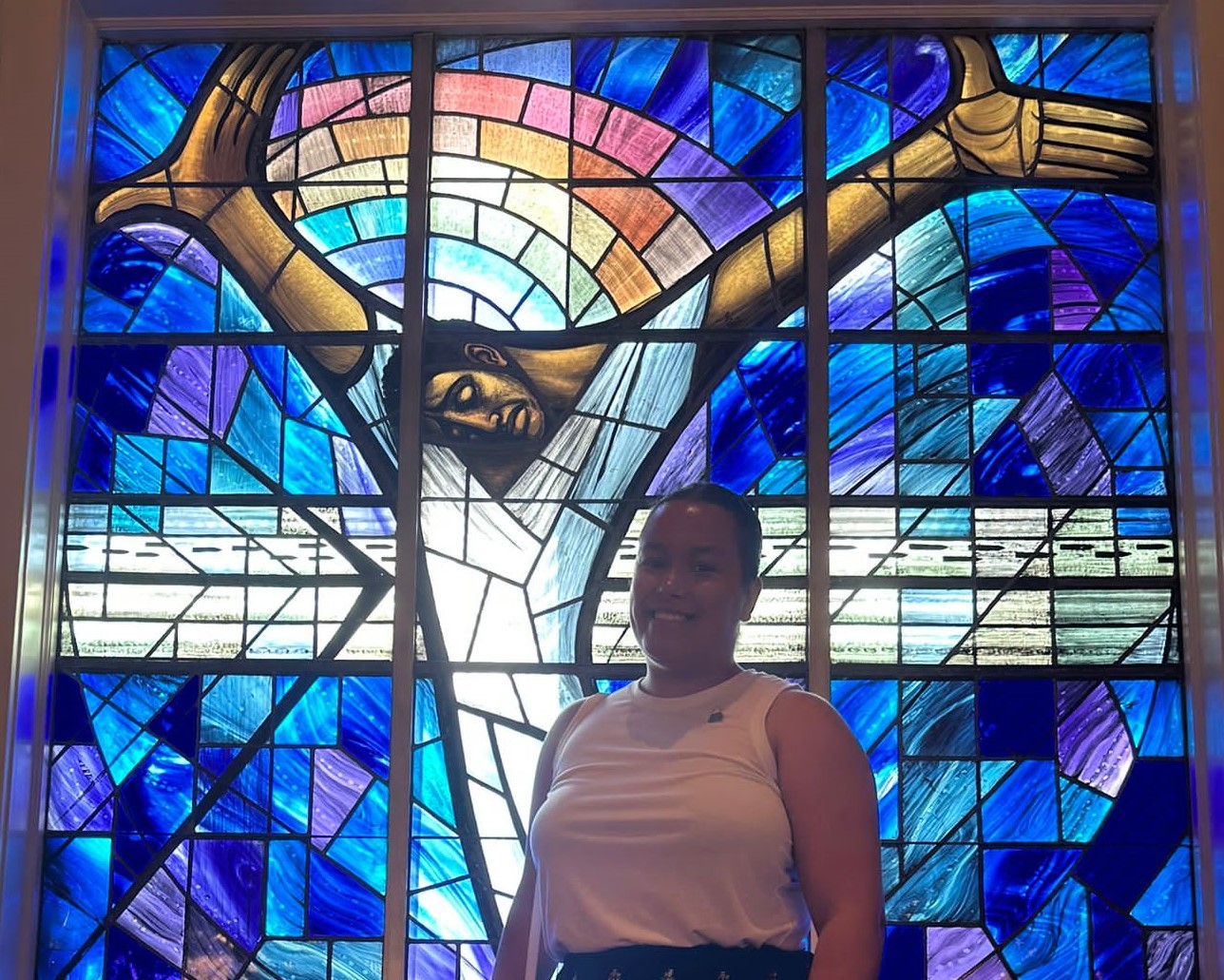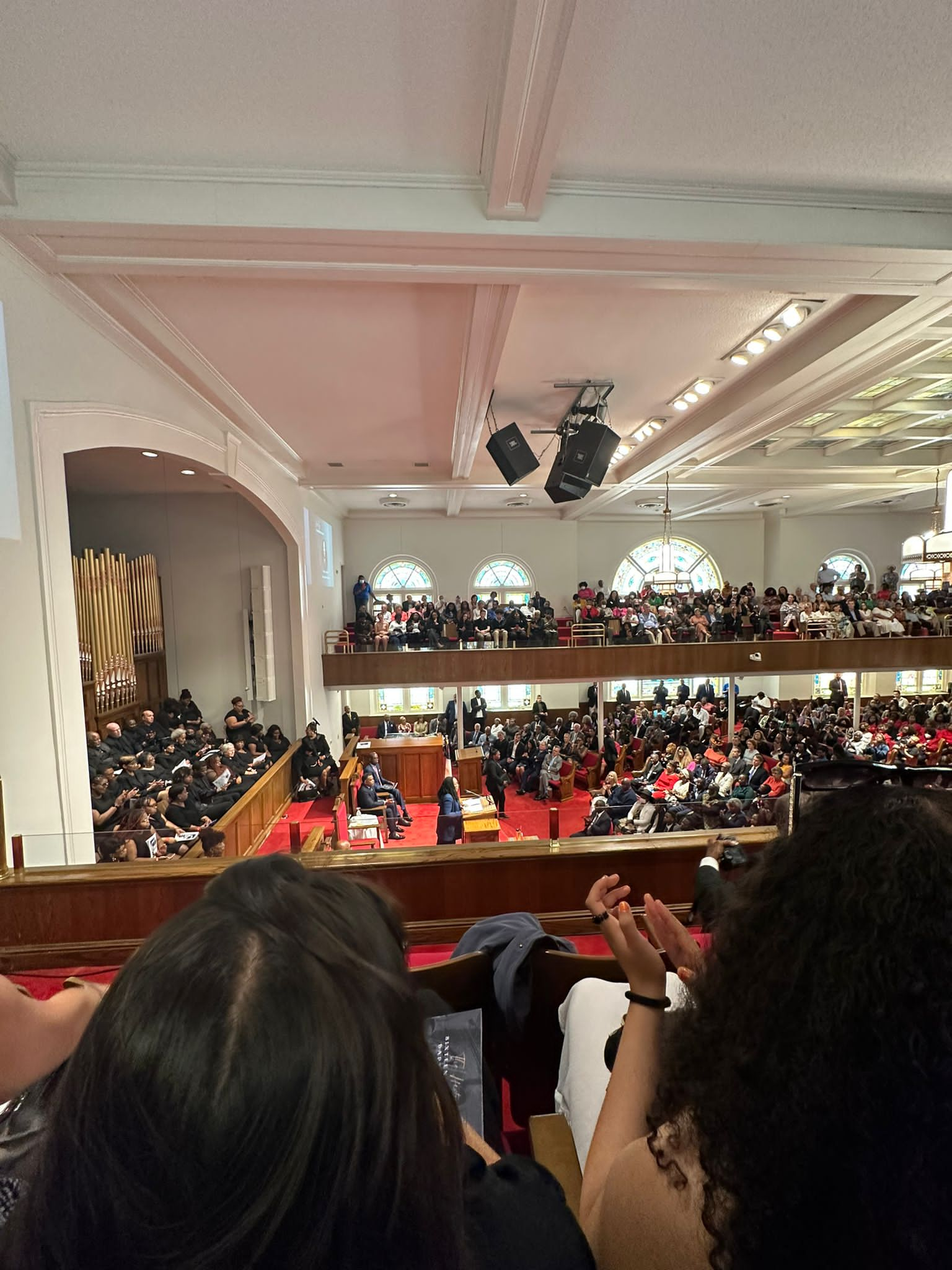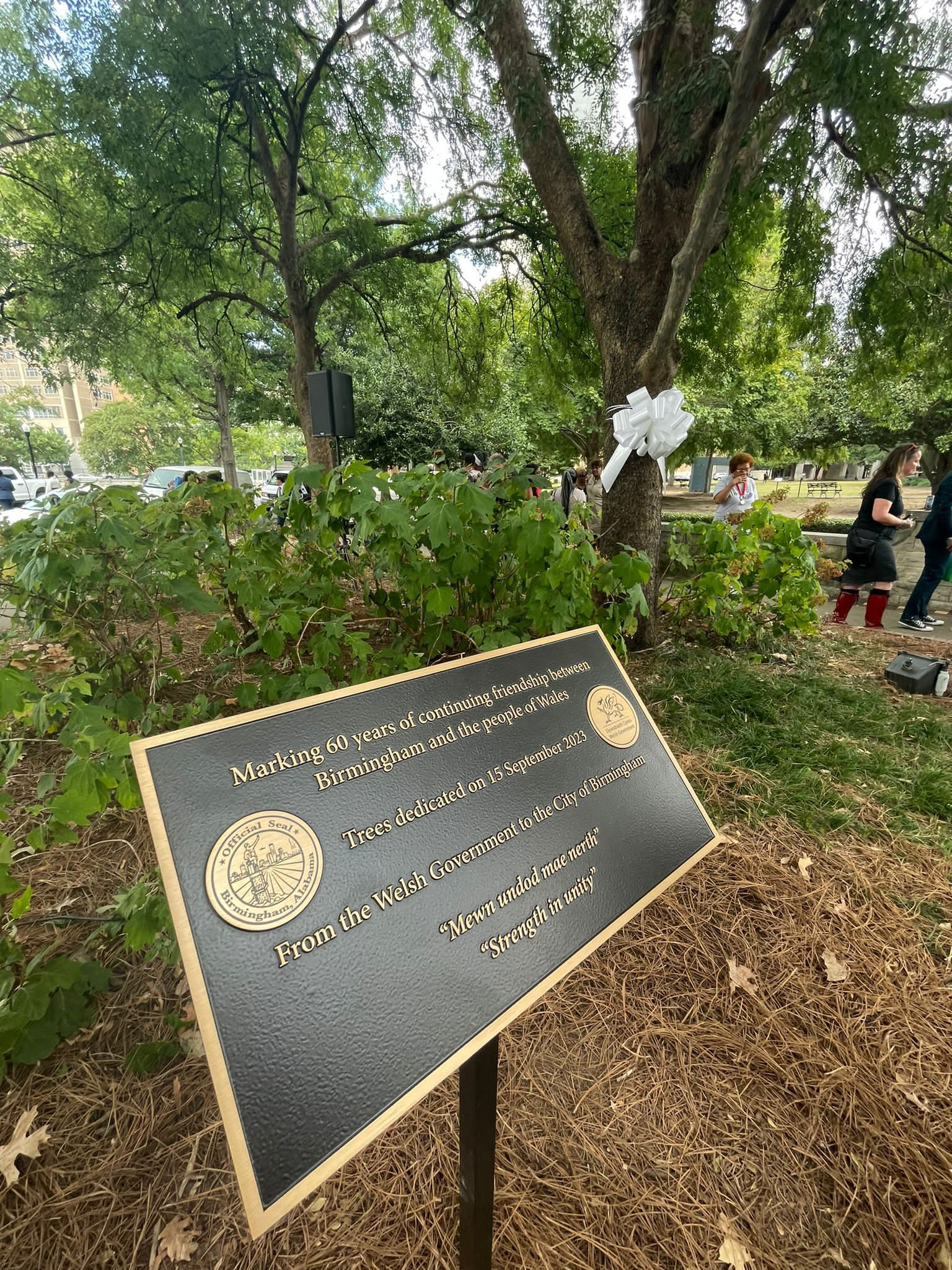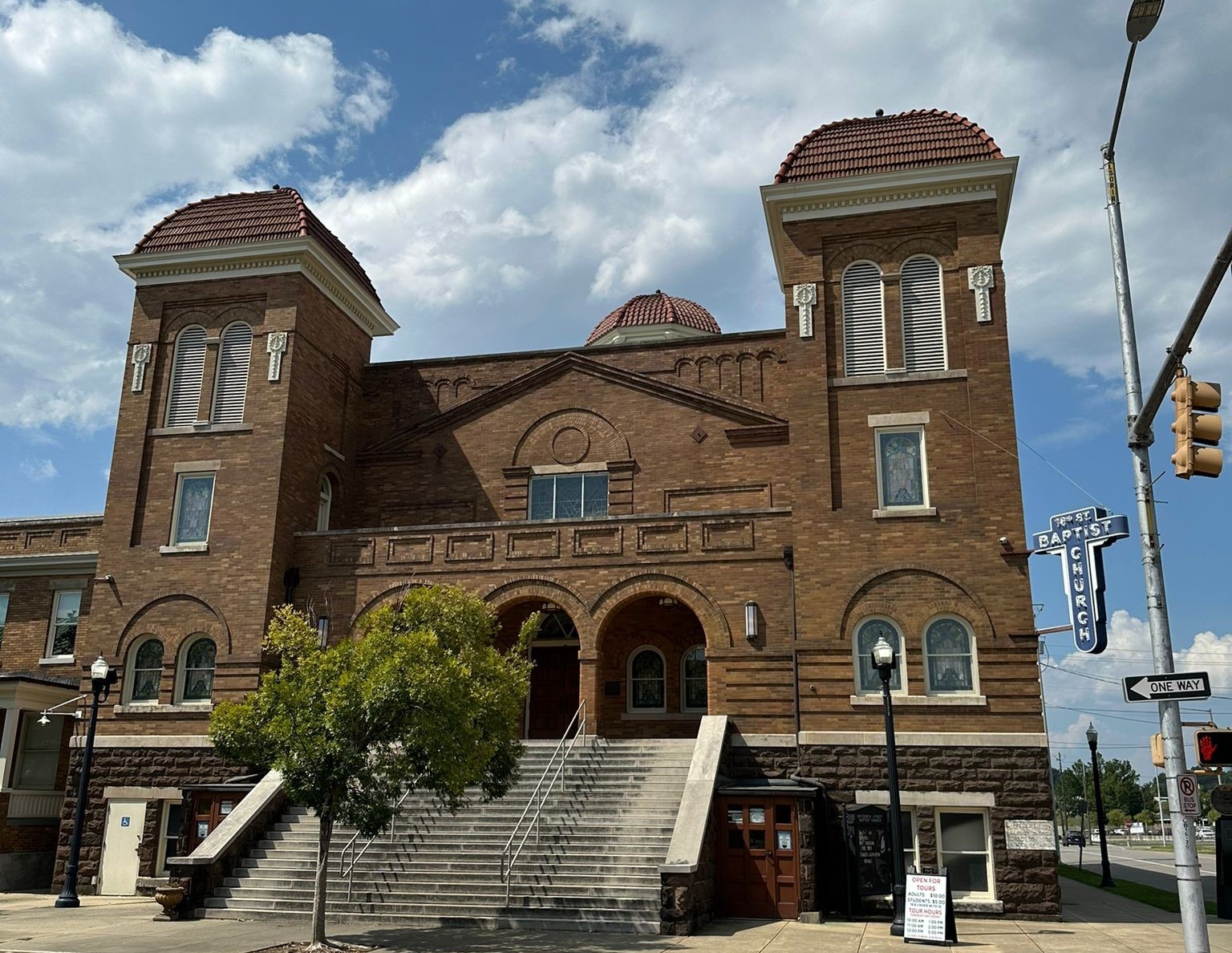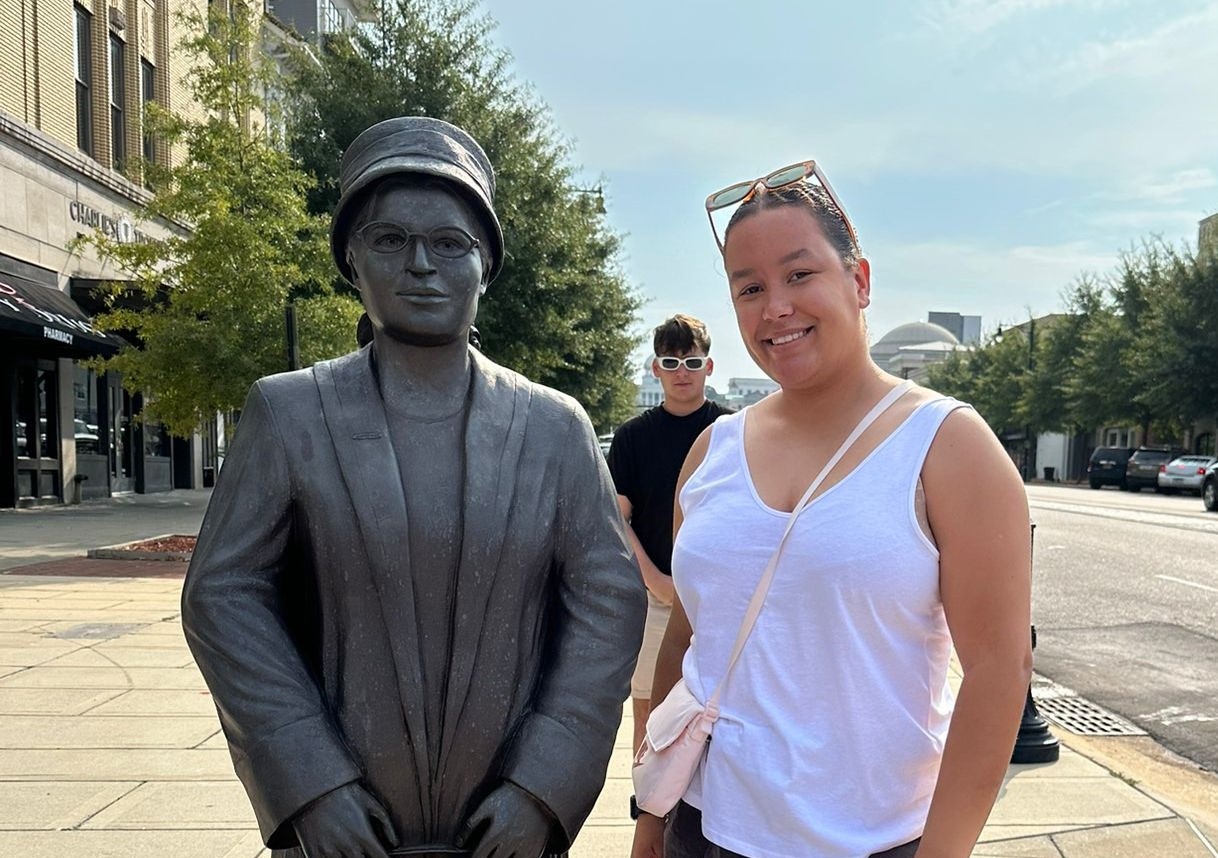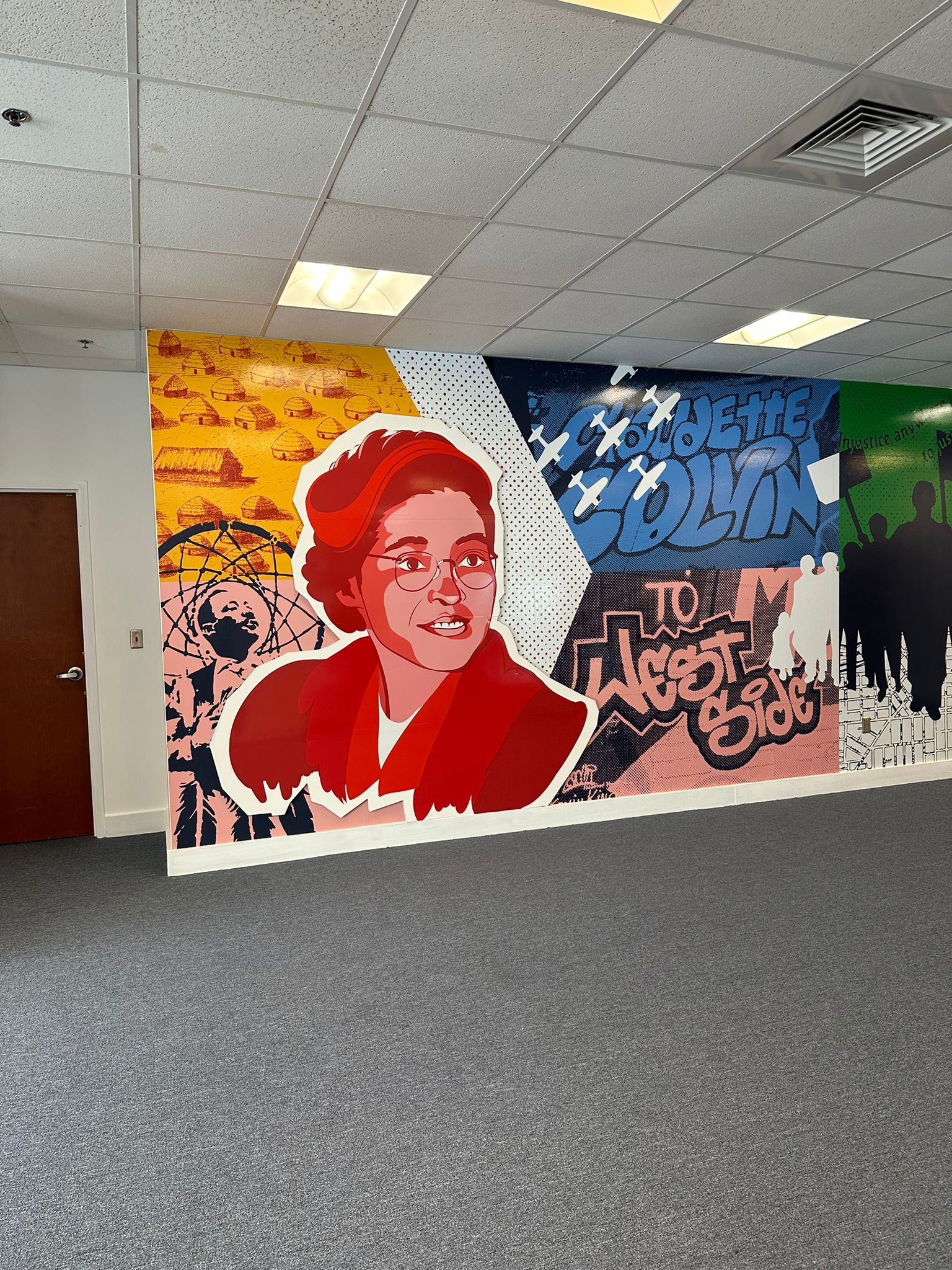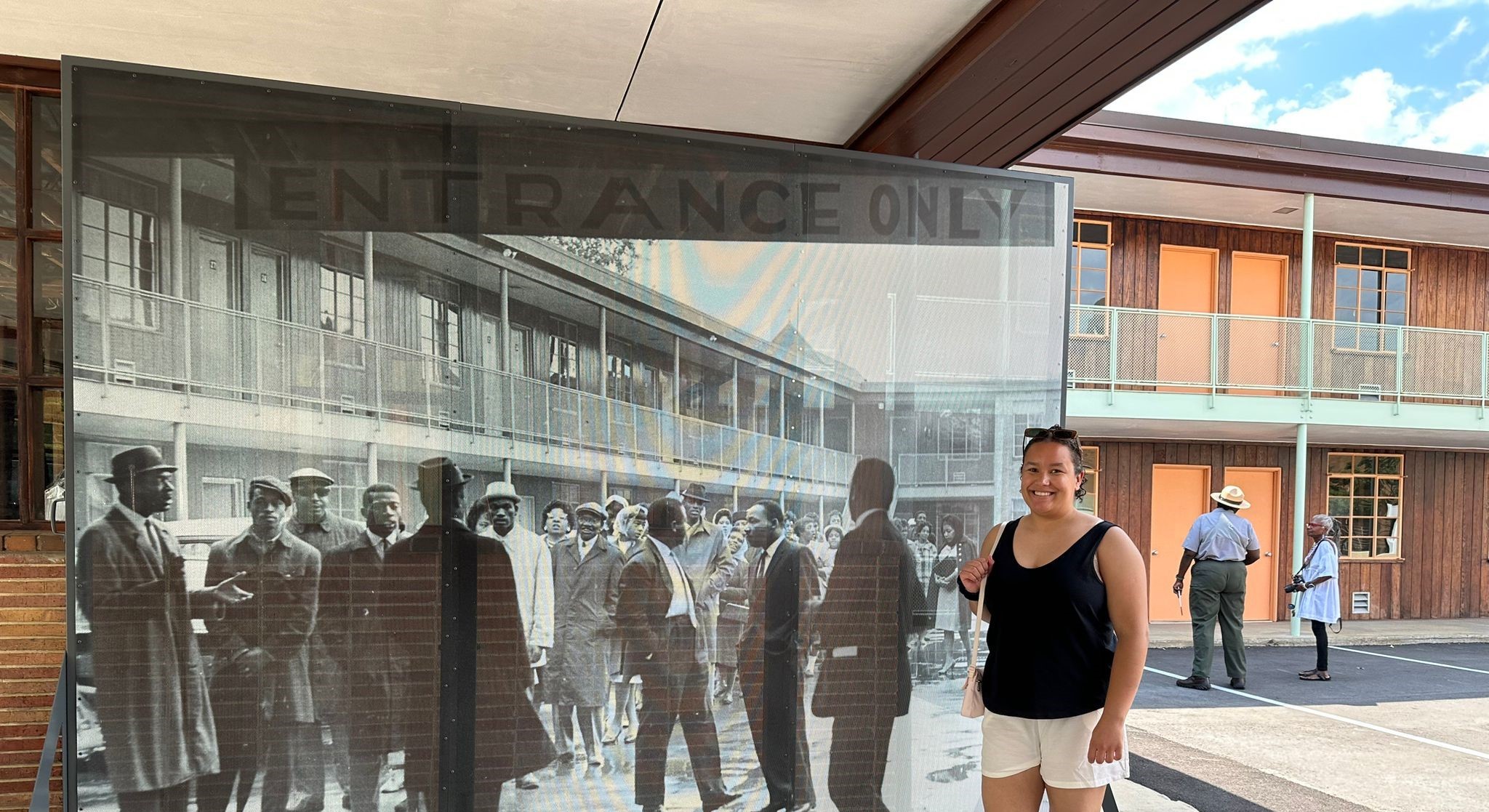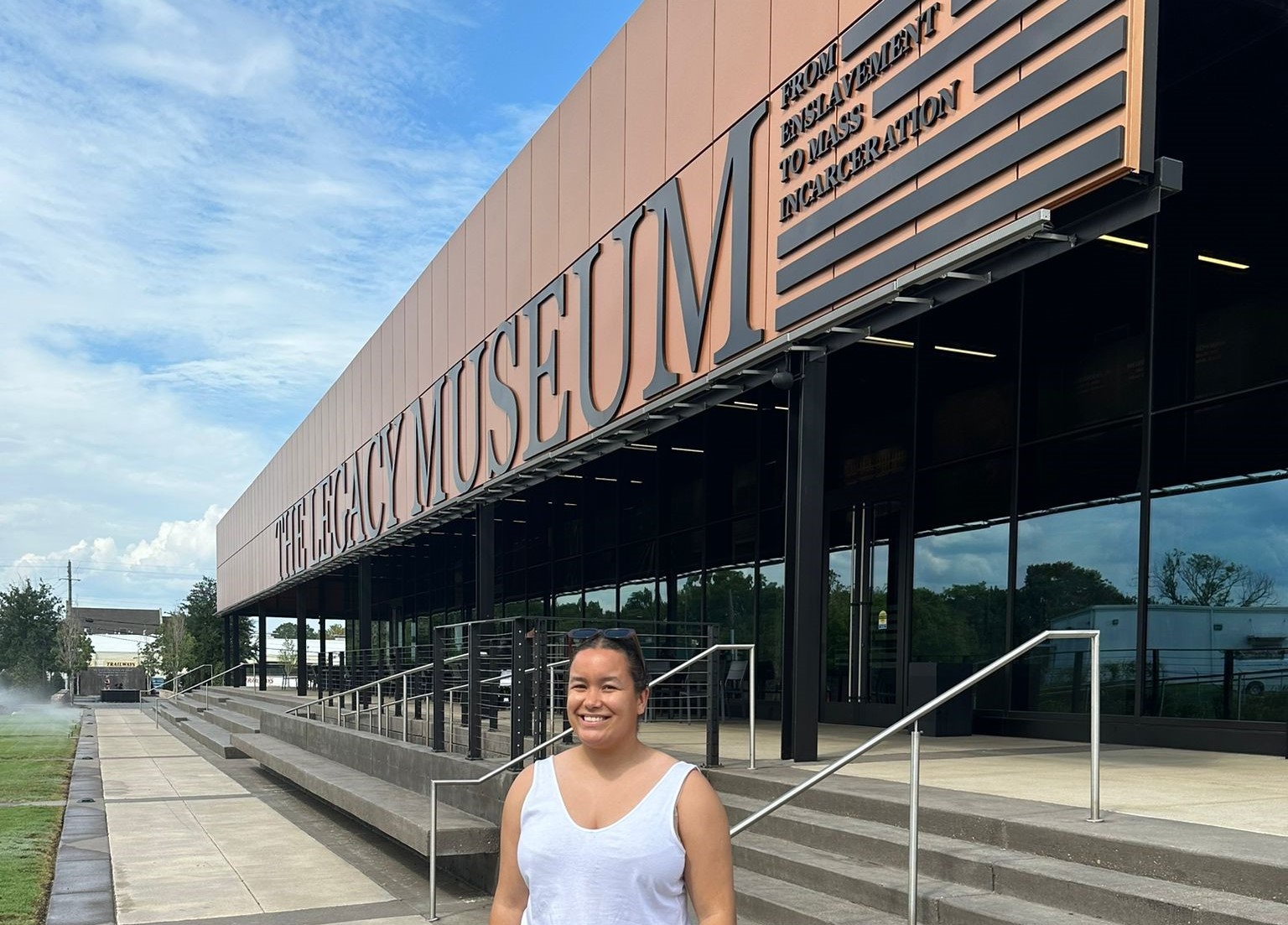Emily Pemberton, Equality, Diversity and Anti-Racism Co-ordinator at the Coleg Cymraeg reflects on her trip to Alabama as part of Urdd Gobaith Cymru's Message of Peace and Goodwill campaign.
Racism exists in Wales, and 2020 is known as the year everyone woke up to it. But sixty years ago, in 1963, there was an important act of solidarity by the people of Wales in response to a racist attack in Alabama. For the most part the deed has been forgotten, but thanks to the Urdd, we have a chance to remember it and learn from it.
I recently returned from a special trip to Alabama with Urdd Gobaith Cymru where I had experiences that will stay with me forever.
My work with the Urdd began at the beginning of the year when I had the opportunity to collaborate on its Message of Peace and Goodwill. The message this year was anti-racism, and anyone who knows me will testify that this is a cause I'm very passionate about. The purpose of the Message is to practice principles of anti-racism everywhere – calling out words of hate, stereotyping, and bigotry. This has been the message of Wales' young people to the world this year. The message also reflects the ethos of my role as Equality, Diversity and Anti-Racism Co-ordinator at the Coleg Cymraeg. It was therefore a privilege to accept an invitation from the Urdd to go to Alabama with a group of Welsh people in September to learn more about the historical events related to the American Civil Rights Movement, and to be inspired.
I wasn't sure what to expect in terms of the trip. My timetable was full of names of locations split between Birmingham and Montgomery (the capital of the province) and the week was jam-packed, but in the best way possible. On the first day we went to Gaston Motel, where Dr. Martin Luther King and his co-workers organized protests related to the Civil Rights Movement as they traveled through Birmingham, Alabama. Birmingham had a specific role in the Civil Rights Movement – it wasn't like other American cities. Birmingham received the nickname 'Bombing-ham' for a time, and was known as the most segregated city in the United States. The leaders of the Civil Rights Movement thought: if we can succeed in Birmingham, we can succeed anywhere.
And this is where we learned about the racial tragedy sixty years ago on September 15, 1963 – the main reason behind the Urdd's trip to Alabama. According to an eyewitness there, a bomb exploding in Birmingham did not come as a shock to residents by 1963 - explosions were constantly occurring. But 18 days after Dr. Martin Luther King's 'I Have a Dream' speech in Washington D.C. - when several people felt hope, Addie Mae Collins, Cynthia Wesley, Carole Robertson and Denise McNair were killed by a bomb set off by the Ku Klux Klan at 16th Street Baptist Church.
The Church has now been rebuilt, and it is clear that the history of the Church is important to every person who walks through the door. The people and children of Wales, led by John Petts from Llansteffan, came together to deliver a gift to the Church - in the form of a new window - one that portrays a Black Christ, pushes hatred away from him, and opens its hand to forgiveness. The "Wales Window" is important to the Church as an act of solidarity by the people of Wales following the explosion.
The words at the bottom of the window read: "You did it to me" which comes from Matthew 25:40 in the Bible: " as you did it to one of the least of these my brothers, you did it to me!"
The window stands at the front of the Church, like a piece of iconic art that came out of the worst tragedy anyone can imagine.
We, led by the Urdd, had travelled to a number of places including the University of Alabama at Birmingham, Miles College (which is HBC – Historically Black College), The Legacy Museum, and even Rosa Parks' house. I felt like I was in the middle of a living history lesson, but we have to remember it wasn't that long ago – we met people who remembered the period and had been marching with Dr King as children.
While many things have improved, justice is a continuing act.
Although the journey was very difficult and emotional at times, it was also one full of friendship and laughter. I will never forget the evenings when we discussed the events of the day over a bowl of waffle fries. I really can't explain how grateful I am to the Urdd for the memories and experience.
In Wales, although the context is very different, we have the same problems with racism. It is promising that there has been a focus on the act of solidarity that came out of the 1963 disaster. Now we need to refocus on what we need to do here to build a fairer Wales. While many things have improved, justice is a continuing act.
October is Black History month, but the trip has reinforced the importance to remember throughout the year. The trip taught me that Wales as a nation is good at extending solidarity, but we have a responsibility to show that to each other too, every day.
But what next for me? It may sound a little cliché but as I expected, the trip re-energised something in me in terms of my work to ensure that Black, Asian and Minority Ethnic people don't face the same challenges from one generation to the next. Improvement requires being active. If I could turn back the clock I'd go on the trip again, but until I get the chance to go back, I'll need to make sure I use my new knowledge in my work daily to build towards a fairer Wales for all.
